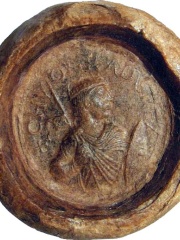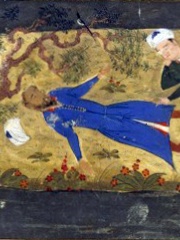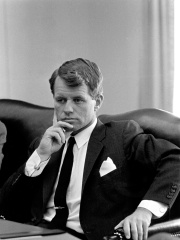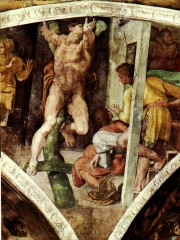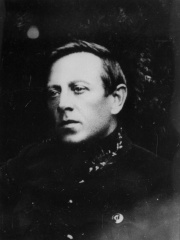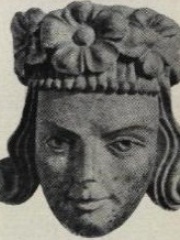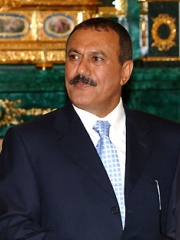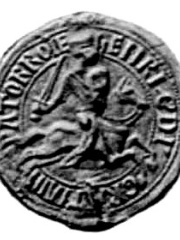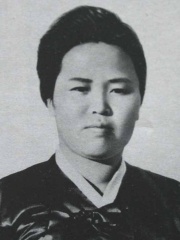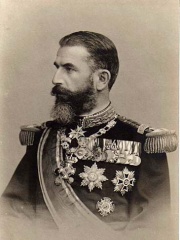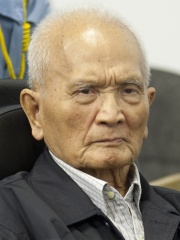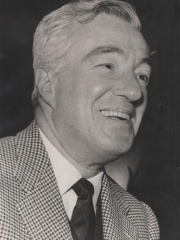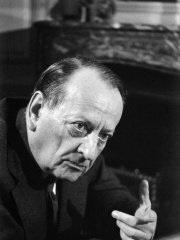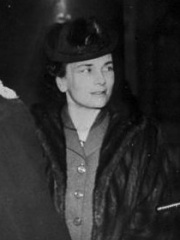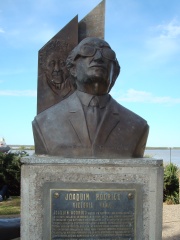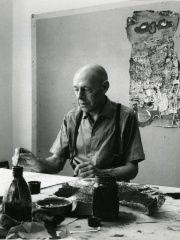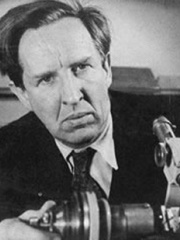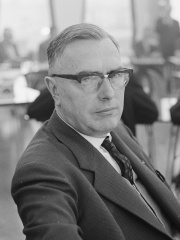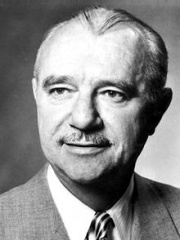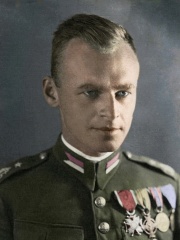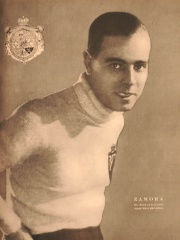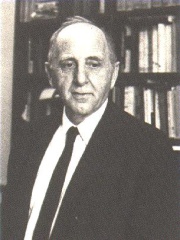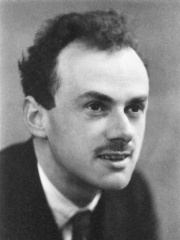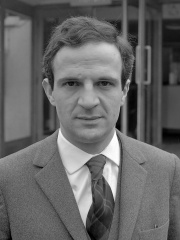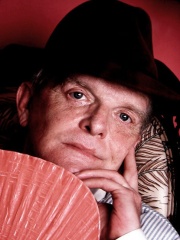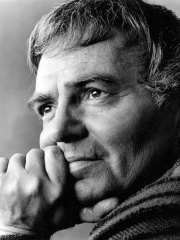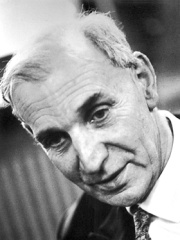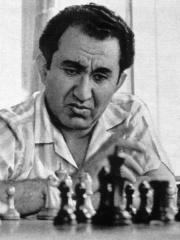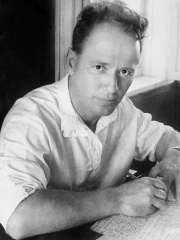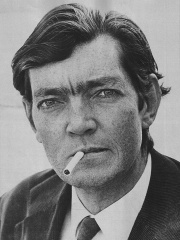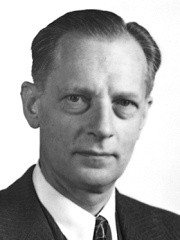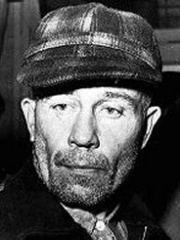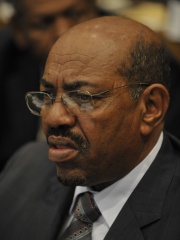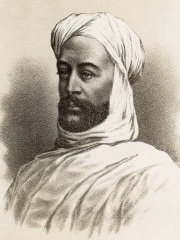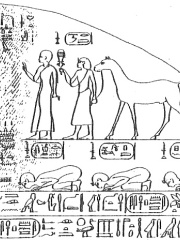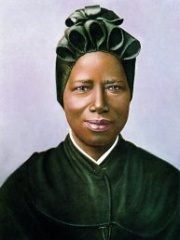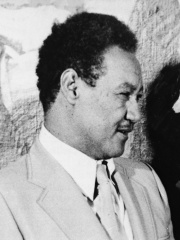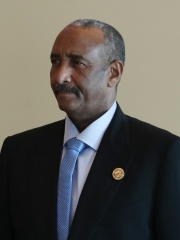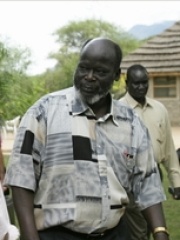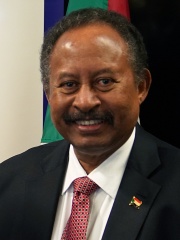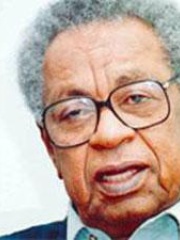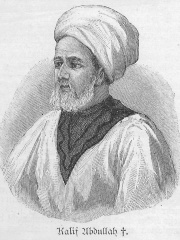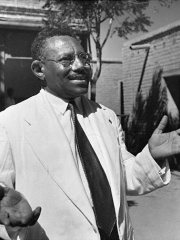POLITICIAN
Mohamed Naguib
1901 - 1984
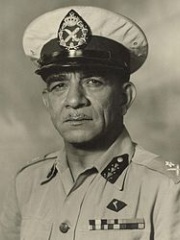
 Mohamed Naguib
Mohamed Naguib
Major General Mohamed Bey Naguib Youssef Qutb El-Qashlan (Arabic: محمد بي نجيب يوسف قطب القشلان; 19 February 1901 – 28 August 1984), known simply as Mohamed Naguib (Arabic: محمد نجيب), was an Egyptian military officer and revolutionary who, along with Gamal Abdel Nasser, was one of the two principal leaders of the Free Officers movement of 1952 that toppled the monarchy of Egypt and the Sudan, leading to the establishment of the Republic of Egypt. A distinguished and decorated general who was wounded in action in the 1948 Arab–Israeli War, he became the leader of the Free Officers Movement of nationalist army officers opposed to the continued presence of British troops in Egypt and Sudan, and the corruption and incompetence of King Farouk. Following the toppling of Farouk in July 1952, Naguib went on to serve as the head of the Revolutionary Command Council, the prime minister of Egypt, and later its first president, successfully negotiating the independence of Sudan (hitherto a condominium of Egypt and the United Kingdom), and the withdrawal of all British military personnel from Egypt. Read more on Wikipedia
His biography is available in 56 different languages on Wikipedia. Mohamed Naguib is the 1,329th most popular politician (down from 1,166th in 2024), the 3rd most popular biography from Sudan (down from 2nd in 2019) and the 2nd most popular Sudanese Politician.
Mohamed Naguib is most famous for being the first president of Egypt after the Egyptian Revolution of 1952.
Memorability Metrics
Page views of Mohamed Naguib by language
Among POLITICIANS
Among politicians, Mohamed Naguib ranks 1,329 out of 19,576. Before him are Conrad I of Germany, Muhammad II of Khwarazm, Robert F. Kennedy, Haman, Symon Petliura, and Haakon V of Norway. After him are Ali Abdullah Saleh, Henry of Flanders, Kim Jong-suk, Fiorello H. La Guardia, Carol I of Romania, and Nuon Chea.
Most Popular Politicians in Wikipedia
Go to all RankingsConrad I of Germany
881 - 918
HPI: 74.49
Rank: 1,323
Muhammad II of Khwarazm
1169 - 1220
HPI: 74.49
Rank: 1,324
Robert F. Kennedy
1925 - 1968
HPI: 74.49
Rank: 1,325
Haman
HPI: 74.48
Rank: 1,326
Symon Petliura
1879 - 1926
HPI: 74.48
Rank: 1,327
Haakon V of Norway
1270 - 1319
HPI: 74.48
Rank: 1,328
Mohamed Naguib
1901 - 1984
HPI: 74.48
Rank: 1,329
Ali Abdullah Saleh
1947 - 2017
HPI: 74.46
Rank: 1,330
Henry of Flanders
1174 - 1216
HPI: 74.46
Rank: 1,331
Kim Jong-suk
1919 - 1949
HPI: 74.46
Rank: 1,332
Fiorello H. La Guardia
1882 - 1947
HPI: 74.46
Rank: 1,333
Carol I of Romania
1839 - 1914
HPI: 74.45
Rank: 1,334
Nuon Chea
1926 - 2019
HPI: 74.45
Rank: 1,335
Contemporaries
Among people born in 1901, Mohamed Naguib ranks 27. Before him are Vittorio De Sica, Alberto Giacometti, André Malraux, Princess Alice, Duchess of Gloucester, Joaquín Rodrigo, and Jean Dubuffet. After him are J. D. Bernal, Max Euwe, Vincent du Vigneaud, Witold Pilecki, Ricardo Zamora, and Simon Kuznets. Among people deceased in 1984, Mohamed Naguib ranks 12. Before him are Paul Dirac, François Truffaut, Truman Capote, James Mason, Alfred Kastler, and Tigran Petrosian. After him are Mikhail Sholokhov, Julio Cortázar, Johnny Weissmuller, Stanislaw Ulam, Carl Ferdinand Cori, and Ed Gein.
Others Born in 1901
Go to all RankingsVittorio De Sica
FILM DIRECTOR
1901 - 1974
HPI: 75.36
Rank: 21
Alberto Giacometti
SCULPTOR
1901 - 1966
HPI: 75.32
Rank: 22
André Malraux
WRITER
1901 - 1976
HPI: 75.21
Rank: 23
Princess Alice, Duchess of Gloucester
COMPANION
1901 - 2004
HPI: 75.17
Rank: 24
Joaquín Rodrigo
COMPOSER
1901 - 1999
HPI: 74.98
Rank: 25
Jean Dubuffet
PAINTER
1901 - 1985
HPI: 74.87
Rank: 26
Mohamed Naguib
POLITICIAN
1901 - 1984
HPI: 74.48
Rank: 27
J. D. Bernal
CHEMIST
1901 - 1971
HPI: 74.06
Rank: 28
Max Euwe
CHESS PLAYER
1901 - 1981
HPI: 73.69
Rank: 29
Vincent du Vigneaud
CHEMIST
1901 - 1978
HPI: 73.57
Rank: 30
Witold Pilecki
SOCIAL ACTIVIST
1901 - 1948
HPI: 73.47
Rank: 31
Ricardo Zamora
SOCCER PLAYER
1901 - 1978
HPI: 73.15
Rank: 32
Simon Kuznets
ECONOMIST
1901 - 1985
HPI: 72.97
Rank: 33
Others Deceased in 1984
Go to all RankingsPaul Dirac
PHYSICIST
1902 - 1984
HPI: 77.91
Rank: 6
François Truffaut
FILM DIRECTOR
1932 - 1984
HPI: 77.56
Rank: 7
Truman Capote
WRITER
1924 - 1984
HPI: 77.19
Rank: 8
James Mason
ACTOR
1909 - 1984
HPI: 76.60
Rank: 9
Alfred Kastler
PHYSICIST
1902 - 1984
HPI: 74.81
Rank: 10
Tigran Petrosian
CHESS PLAYER
1929 - 1984
HPI: 74.52
Rank: 11
Mohamed Naguib
POLITICIAN
1901 - 1984
HPI: 74.48
Rank: 12
Mikhail Sholokhov
WRITER
1905 - 1984
HPI: 74.46
Rank: 13
Julio Cortázar
WRITER
1914 - 1984
HPI: 74.29
Rank: 14
Johnny Weissmuller
SWIMMER
1904 - 1984
HPI: 74.19
Rank: 15
Stanislaw Ulam
MATHEMATICIAN
1909 - 1984
HPI: 74.02
Rank: 16
Carl Ferdinand Cori
CHEMIST
1896 - 1984
HPI: 72.81
Rank: 17
Ed Gein
EXTREMIST
1906 - 1984
HPI: 72.70
Rank: 18
In Sudan
Among people born in Sudan, Mohamed Naguib ranks 3 out of 38. Before him are Omar al-Bashir (1944), and Luqman (-1100). After him are Muhammad Ahmad (1844), Piye (-800), Josephine Bakhita (1868), Gaafar Nimeiry (1930), Abdel Fattah al-Burhan (1960), John Garang (1945), Osman Hussein (1951), Abdalla Hamdok (1956), and Tayeb Salih (1929).
Others born in Sudan
Go to all RankingsOmar al-Bashir
POLITICIAN
1944 - Present
HPI: 79.00
Rank: 1
Luqman
WRITER
1100 BC - 1769
HPI: 74.76
Rank: 2
Mohamed Naguib
POLITICIAN
1901 - 1984
HPI: 74.48
Rank: 3
Muhammad Ahmad
RELIGIOUS FIGURE
1844 - 1885
HPI: 70.35
Rank: 4
Piye
POLITICIAN
800 BC - 716 BC
HPI: 69.49
Rank: 5
Josephine Bakhita
RELIGIOUS FIGURE
1868 - 1947
HPI: 68.83
Rank: 6
Gaafar Nimeiry
POLITICIAN
1930 - 2009
HPI: 68.38
Rank: 7
Abdel Fattah al-Burhan
POLITICIAN
1960 - Present
HPI: 67.61
Rank: 8
John Garang
POLITICIAN
1945 - 2005
HPI: 65.06
Rank: 9
Osman Hussein
POLITICIAN
1951 - Present
HPI: 63.27
Rank: 10
Abdalla Hamdok
POLITICIAN
1956 - Present
HPI: 62.30
Rank: 11
Tayeb Salih
WRITER
1929 - 2009
HPI: 62.20
Rank: 12
Among POLITICIANS In Sudan
Among politicians born in Sudan, Mohamed Naguib ranks 2. Before him are Omar al-Bashir (1944). After him are Piye (-800), Gaafar Nimeiry (1930), Abdel Fattah al-Burhan (1960), John Garang (1945), Osman Hussein (1951), Abdalla Hamdok (1956), Ibrahim Abboud (1900), Hassan Al-Turabi (1932), Abdallahi ibn Muhammad (1846), and Ismail al-Azhari (1901).
Omar al-Bashir
1944 - Present
HPI: 79.00
Rank: 1
Mohamed Naguib
1901 - 1984
HPI: 74.48
Rank: 2
Piye
800 BC - 716 BC
HPI: 69.49
Rank: 3
Gaafar Nimeiry
1930 - 2009
HPI: 68.38
Rank: 4
Abdel Fattah al-Burhan
1960 - Present
HPI: 67.61
Rank: 5
John Garang
1945 - 2005
HPI: 65.06
Rank: 6
Osman Hussein
1951 - Present
HPI: 63.27
Rank: 7
Abdalla Hamdok
1956 - Present
HPI: 62.30
Rank: 8
Ibrahim Abboud
1900 - 1983
HPI: 61.56
Rank: 9
Hassan Al-Turabi
1932 - 2016
HPI: 61.48
Rank: 10
Abdallahi ibn Muhammad
1846 - 1899
HPI: 61.38
Rank: 11
Ismail al-Azhari
1901 - 1969
HPI: 60.74
Rank: 12
